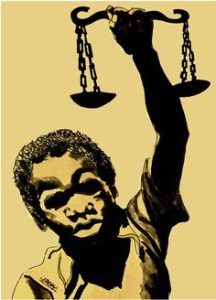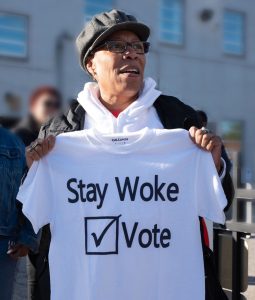What Does Woke Mean in Politics
What Does Woke Mean in Politics: Unravelling Its Significance
The term “woke” has evolved from its origins in African-American Vernacular English to encompass a broader awareness of social inequalities. However, it’s now often used negatively in political discourse to describe liberal or progressive ideas. This exploration delves into the history and significance of “woke” in politics.
The Birth of “Woke”
To comprehend the term “woke” and its political implications, we must first delve into its origins. The word “woke” derives from African American Vernacular English (AAVE) and has its roots in the civil rights and Black liberation movements of the 20th century. It initially meant being awakened or aware, primarily in the context of racial and social injustices. “Stay woke” was a call to remain vigilant and informed about ongoing issues, especially those affecting marginalized communities. Also, read about Who Was India First Female Prime Minister
The Evolution of Awareness
Over time, “woke” expanded beyond its original meaning to encompass a broader range of social and political issues. It became associated with a heightened awareness of systemic inequalities, discrimination, and various forms of oppression. In the political sphere, being “woke” implies being informed about and committed to addressing issues like racism, sexism, LGBTQ+ rights, environmental justice, and more.
A Call for Social Justice
In politics, being “woke” is often closely linked to social justice activism. It reflects a commitment to challenging the status quo and advocating for change. Politically “woke” individuals and movements often demand equity, inclusivity, and the dismantling of oppressive structures. This newfound awareness and activism have reshaped political discourse and mobilized movements on various fronts.
The Intersectionality of “Woke”
What sets “woke” apart is its emphasis on intersectionality. Intersectionality acknowledges that different forms of discrimination and oppression often intersect, affecting individuals in complex ways. Being “woke” in politics means recognizing these intersections and advocating for the rights and dignity of all individuals, regardless of their race, gender, sexual orientation, or socioeconomic status.

The Controversies Surrounding “Woke”
As with any politically charged term, “woke” is not without its controversies. Critics argue that it can be used pejoratively to dismiss legitimate concerns as mere “wokeness” or political correctness. Others raise concerns about the effectiveness of “wokeness” in bringing about concrete change. These debates highlight the complexities of using such a loaded term in political discourse.
“Woke” and the Culture War
The term “woke” has also become a battleground in the broader culture war. It is often pitted against the concept of “cancel culture,” where individuals or entities are boycotted or ostracized for perceived transgressions. The debate over “woke” versus “cancel culture” underscores the polarizing nature of this term and its implications.
“Woke” in Modern Politics
In contemporary politics, the concept of being “woke” is embraced by progressive and socially conscious movements. It is closely associated with the fight for racial justice, gender equality, LGBTQ+ rights, and environmental sustainability. Politicians and activists who identify as “woke” advocate for policies and reforms that address these issues.
The Impact on Political Language
The adoption of “woke” in politics has left an indelible mark on political language. It has reshaped the way politicians and activists communicate with their audiences. “Wokeness” has become a core aspect of political campaigns, speeches, and policy initiatives. The emphasis on social justice and inclusivity is no longer a niche concern but a central theme in political rhetoric.
“Woke” and Electoral Politics
The influence of “woke” culture is particularly pronounced in electoral politics. Candidates and parties now incorporate social justice issues into their platforms, appealing to a base that values “wokeness.” This has led to a shift in the priorities of political campaigns, with an increased focus on issues like criminal justice reform, healthcare access, climate change, and equity.

The Critiques of “Wokeness”
Despite its growing influence, “wokeness” is not without its critics. Some argue that it has the potential to alienate moderate voters and perpetuate divisions. They contend that the uncompromising nature of “wokeness” can hinder dialogue and cooperation in the political arena. These critiques raise important questions about the balance between activism and pragmatism in politics.
Beyond the United States
The impact of “woke” culture extends beyond the borders of the United States. It has resonated with social and political movements worldwide. Issues of social justice, equality, and human rights are universal concerns, and the language of “wokeness” provides a shared framework for addressing them.
Conclusion
The concept of “woke” in politics is a reflection of the evolving nature of political discourse and activism. It signifies a growing awareness of systemic injustices and a commitment to addressing them. While “wokeness” has sparked vital conversations and mobilized movements, it also faces criticism and debate. Its role in shaping the political landscape, both in the United States and globally, is a testament to the power of language and awareness in effecting change. The journey of “woke” in politics is far from over, and its impact continues to unfold in the years to come. Visit our website for more interesting information about Messi losangelestimez.com
FAQs
Q1: What is the origin of the term “woke” in politics?
The term “woke” originates from African-American Vernacular English (AAVE) and initially referred to being alert to racial prejudice and discrimination. It later expanded to encompass broader social awareness.
Q2: How is “woke” used in contemporary political discourse?
In recent years, “woke” has been employed as a negative buzzword in politics, often to describe liberal or progressive ideas, such as support for LGBTQ+ rights, Pride Month, or discussions about race in schools.
Q3: Does “woke” have a positive or negative connotation in politics?
“Woke” can have both positive and negative connotations. It originally stood for social awareness and justice, but in politics, it’s often used negatively to criticize progressive or liberal positions.
Q4: How has the meaning of “woke” evolved over time?
Originally associated with racial awareness, “woke” has broadened its meaning to include awareness of various social inequalities, but in politics, it’s primarily used in a negative sense.
Q5: What impact has the term “woke” had on the political landscape?
“Woke” has become a polarizing term, contributing to debates and divisions in political discourse, especially regarding social justice and progressive ideals.
